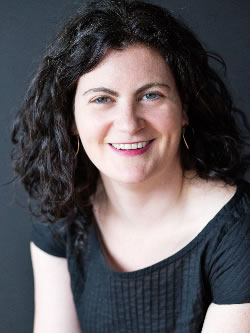|
In the wake of publishing my first novel I have been thinking and talking a lot about the curious border between fiction and nonfiction, which I have always found to be interesting. Even before I wrote my own book, I was interested in the ways that authors were asked about their own lives in relation to their books, in the ways that they did and did not bring their own stories into their work, and in the ways that I would feel I was getting to know an author based on reading his/her fiction. Why do we care what is "true" and what isn't, when we read a piece of fiction? It is a natural part of the writing and reading process, to feel curious about the veils of a work of fiction, perhaps because the creation of a book is such a private and solitary process, and in so many ways is simply irretrievable—a writer can so very rarely specify exactly what was going on for him or her when s/he was writing a particular passage or scene. This is part of why the fun of writing and reading never goes away, because you can just never get to the bottom of it. But at a certain level, when it comes to life and to experience, isn't everything in the world equally true? I'm not sure of the answer.
I am a deep believer in the act of writing as a powerful tool for many things. It has always been my way of processing events, of processing the world that I see. Even when I was very young I would sit down to write about something that I had experienced, and I remember marveling at the way that after I had written it down it seemed to leave me. It was a safety net, of sorts, for me, as if putting down on paper something I had experienced would prove to me that it had been real, and that I would not lose the memory of it, the feeling. When I write a piece of fiction, there is an added bonus, for I can make myself feel connected to the larger human family by giving other people pieces of my own reality, thereby getting outside of my own limited view.
Many people have asked me about the truth of my work—strangers as well as people I have known for years. I don't deny the aspects of what I have written that are based on my experiences, but I wonder at our desire to know the answers to these kinds of questions, and at what level the answers matter. If I have done my job as a writer, I think, a piece of my writing can stand outside of questions of truth, for it can achieve a kind of truth that is its own, and that is independent; this is what I think about the books I have loved, and what I hope for all of my work. This, for me, is the greatest gift of literature: the way it can transform our world into something with its own rules, something that is mysterious and contained, where the answers to all the questions are only to be found in the text, and not even the author can provide them.
|


